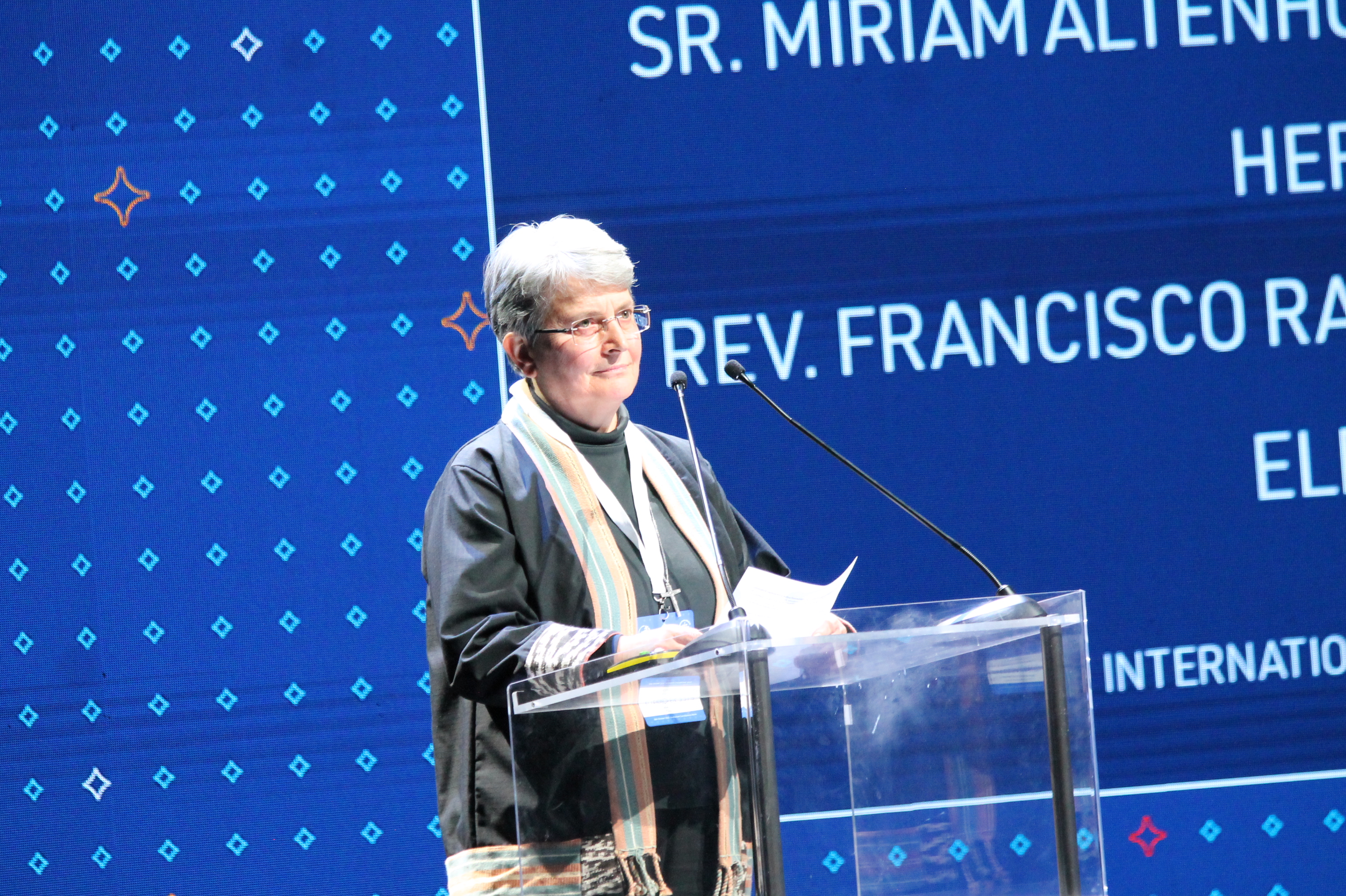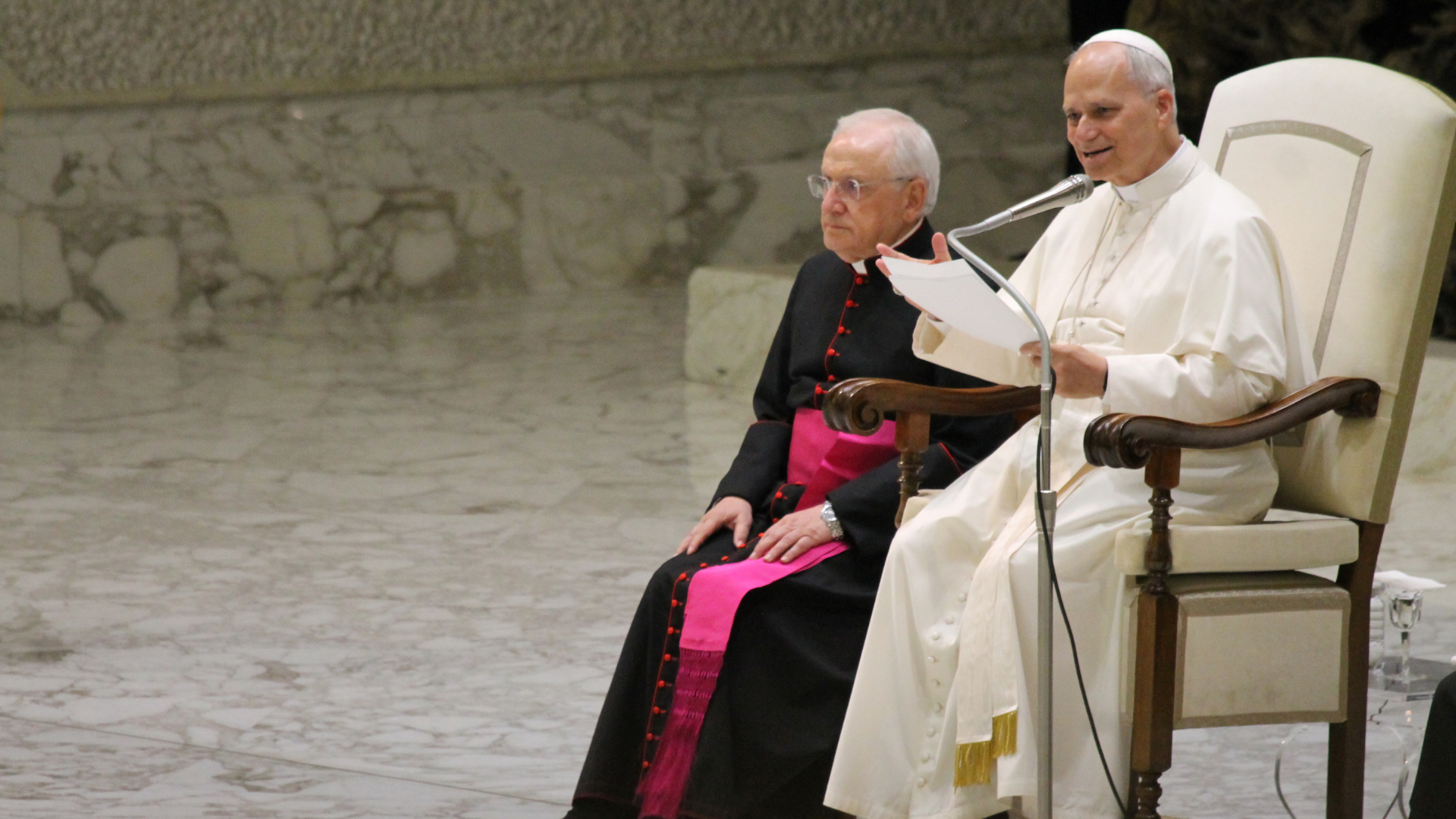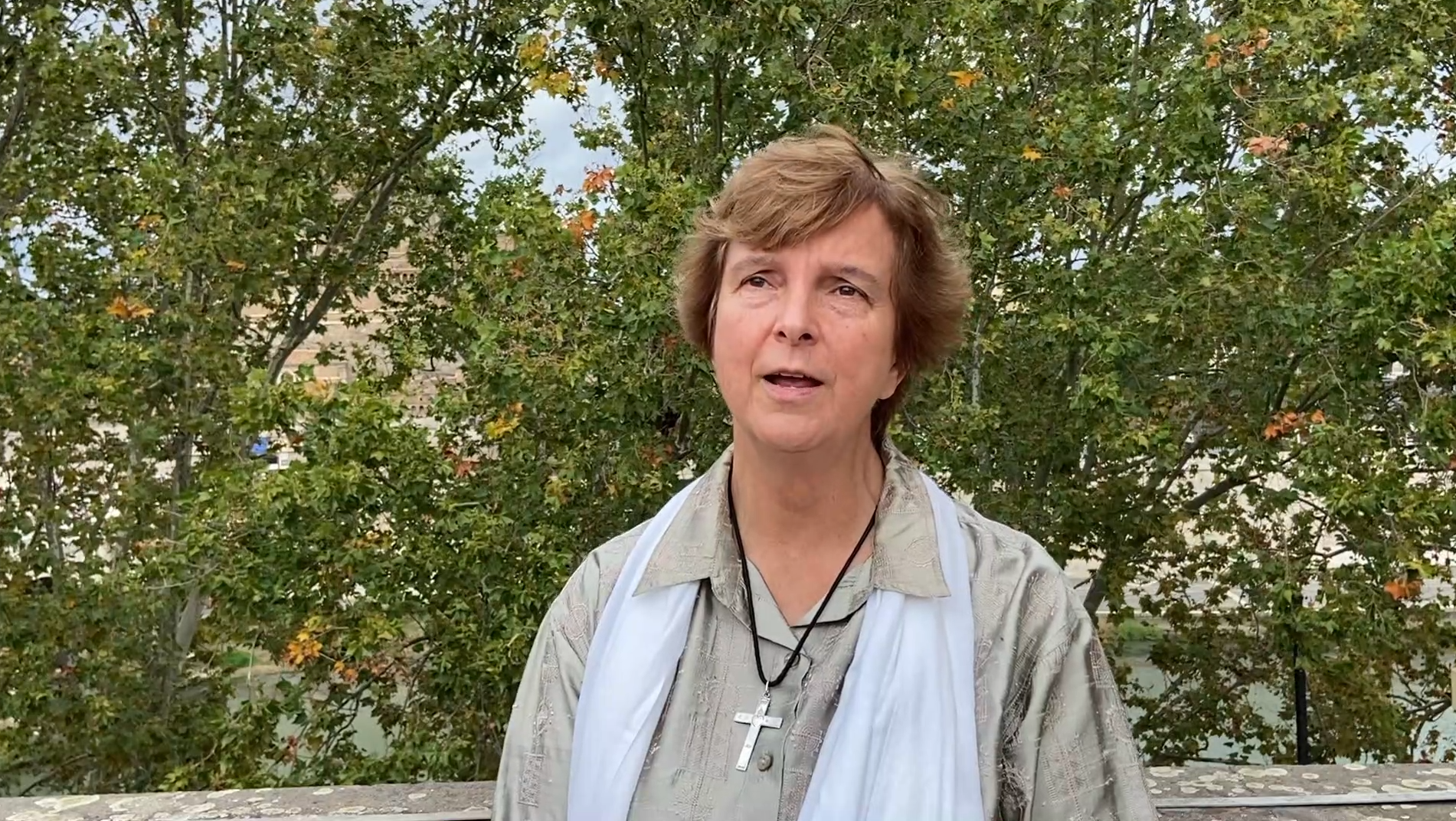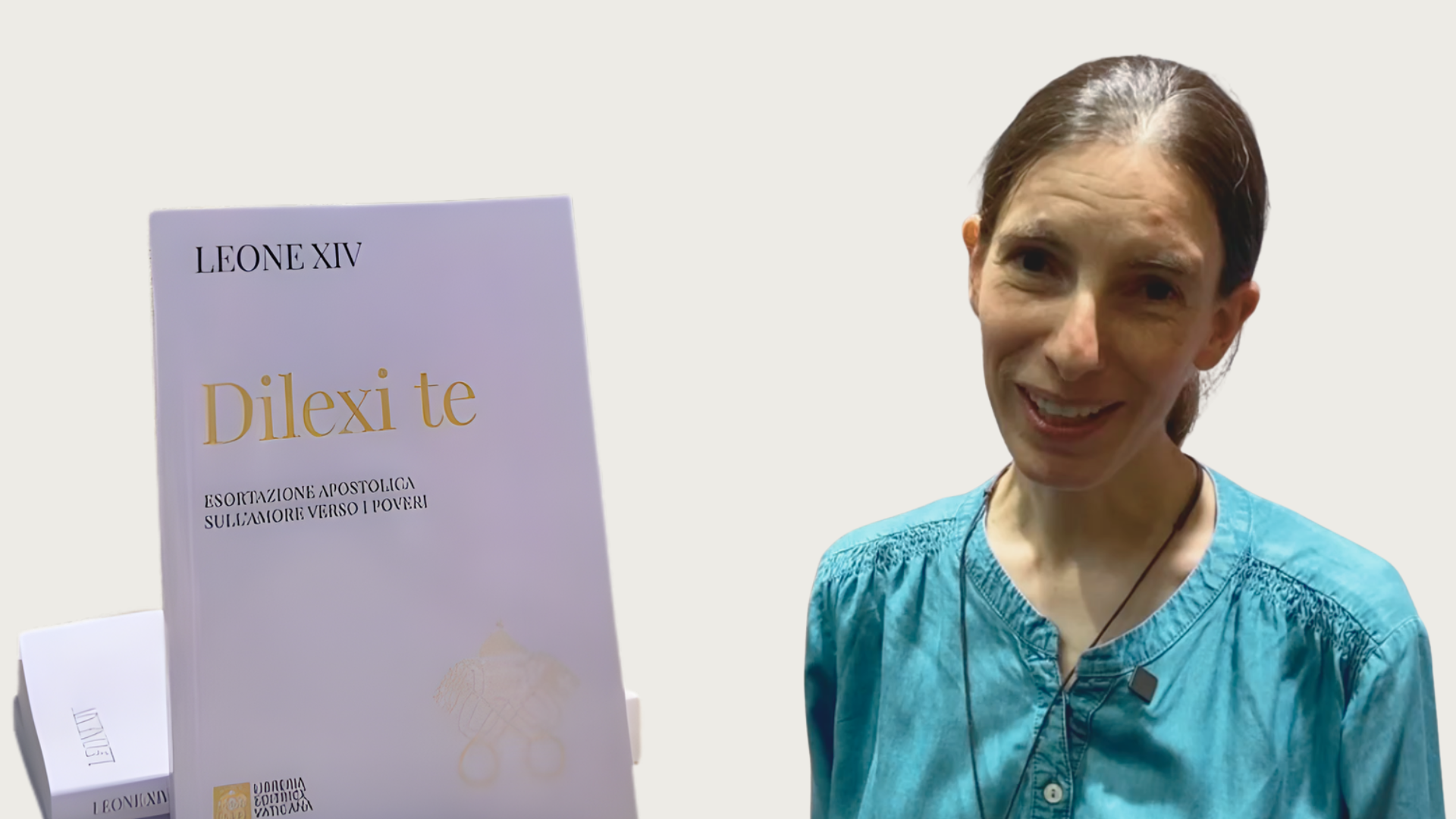
31/10/2025
News
The Education Jubilee marks the role of sisters in educating new generations
The Education Jubilee marks the role of sisters in educating new generations
“To guarantee the right to education is to affirm the dignity of each person, to break the cycles of exclusion, and to plant seeds of peace. Women religious are there.”
Such spoke Sr. Miriam Altenhofen SSpS, a board member of the UISG, at an international congress entitled Educational Constellations: A Pact with the Future. It took place in Rome on the 60th anniversary of the declaration of the Second Vatican Council on Christian education Gravissimum Educationis. It was part of the Jubilee of the World of Education within the context of the Jubilee 2025: Pilgrims of Hope.
The congress was opened by Cardinal José Tolentino de Mendonça, Prefect of the Dicastery for Culture and Education. Among other panelists, there were educators, archbishops, bishops including Nobel Prize winner in Literature 2023 Jon Fosse.
In her speech, Sr. Miriam underlined the role of sisters and the Catholic church in education by founding schools and universities often in the most remote and difficult places. The goal has not been only to transmit knowledge, but to form the whole person and build up a society based on solidarity and justice:
“As women religious we contribute an essential part to this kind of wholistic education and formation”.
The Superior General of The Missionary Sisters Servants of the Holy Spirit enumerated many spheres in which the religious women are present, such as in slums, day care centers, and kindergartens:
“In a synodal way female religious congregations build bridges and develop networks, create synergies for an integral formal and non-formal education”.
The sisters try to instill Christian values in the hearts of pupils so that they become responsible citizens who will contribute to making the world a better place.
Sr. Miriam ended her with an appeal to collaboration:
“Let us work together, let us form a “constellation”, as Cardinal Tolentino calls it, with governments, faith communities, educators, and families, to ensure that every child, every young person, everywhere, can learn, grow, and contribute their gifts to the world.”
The full speech of Sr. Miriam entitled Educating for Hope and Human Dignity: The vital contribution of Women Religious
Good morning to everyone, and thank you very much for the invitation to share in this important panel.
Education is a key pillar of the UN's Sustainable Development Goals adopted in 2015. SDG 4 is dedicated to "Quality Education," which aims to ensure all girls and boys complete free, quality primary and secondary education.
Education is not a privilege for the few. It is a fundamental human right, rooted in the dignity of every person created in the image of God. Article 26 of the Universal Declaration of Human Rights affirms this, and Pope Francis reminds us through the Global Compact on Education that education is always an act of hope—an investment in the future of humanity and our common home.
The reality is still far from achieving this: look at Gaza, Syria or Ukraine. It is impossible to provide quality education in an environment characterized by violence, war, extreme poverty and the lack of the very essentials like food and water. The above mentioned places are only an example for so many other places where children and young people cannot go to school or go to school with empty stomachs.
The Catholic Church, and especially women religious, try to close this gap. The Church is a major global player, operating the largest non-governmental school system in the world. The Church has always understood education as part of her mission.
In 2019 Pope Francis launched an invitation to dialogue on how we are shaping the future of our planet. According to Pope Francis, all change requires an educational process aimed at developing a universal solidarity and a more welcoming society. He endorsed a Global Compact on Education to rekindle our dedication for and with young people, renewing our passion for a more open and inclusive education. (Vademecum Global on Education)
For centuries, religious congregations, lay movements, and Catholic institutions have founded schools and universities around the world, often in the most remote and difficult places. The goal has never been only to transmit knowledge, but to form the whole person—mind, heart, and spirit and to build up a society based on solidarity and justice.
As women religious we contribute an essential part to this kind of wholistic education and formation. We are present in all sectors of society. We are organized in the UISG, the International Union of Superiors’ General, with more than 1900 female congregations responding to critical issues in today’s world. In a synodal way female religious congregations build bridges and develop networks, create synergies for an integral formal and non-formal education. You find sisters in slums, at the margins of society, educating and empowering especially girls and women. You find them in day care centers, kindergartens and all levels of education up to universities exercising their different charisms and serving the people in need.
Normally sisters are close to other women, to parents and families. They are collaborating with lay mission partners and other organizations or institutions. They pursue cultural goals as well as human and spiritual formation. They try to instill human and Christian values in the hearts of their students and help children and youth to grow up into responsible adults who want to contribute to the betterment of this world. They pay attention to the soft music of relationships and our interrelatedness as human beings and with our natural world and the whole cosmos. All is interconnected and we are dependent on each other and our Mother Earth.
To guarantee the right to education is to affirm the dignity of each person, to break the cycles of exclusion, and to plant seeds of peace. Women religious are there.
Let us work together, let us form a “constellation”, as Cardinal Monsignore Tolentino calls it, —governments, faith communities, educators, and families—to ensure that every child, every young person, everywhere, can learn, grow, and contribute their gifts to the world.
In the words of Pope Francis: “To educate is always an act of hope.”
That this hope may become real.
Related News
 Vatican News
Montag 03 November 2025
Apostolic Letter “Drawing New Maps of Hope” by Pope Leo XIV
Read
Vatican News
Montag 03 November 2025
Apostolic Letter “Drawing New Maps of Hope” by Pope Leo XIV
Read
 News
Mittwoch 29 Oktober 2025
Why was The Jubilee of Synodal Teams and Participatory Bodies a gift?
Read
News
Mittwoch 29 Oktober 2025
Why was The Jubilee of Synodal Teams and Participatory Bodies a gift?
Read
 Other News
Dienstag 28 Oktober 2025
Adolescent Worlds: A Question That Awaits an Answer
Read
Other News
Dienstag 28 Oktober 2025
Adolescent Worlds: A Question That Awaits an Answer
Read
 News
Samstag 18 Oktober 2025
“Dilexi te” released during the Jubilee of Consecrated Life recalls the commitment of religious women to the poor
Read
News
Samstag 18 Oktober 2025
“Dilexi te” released during the Jubilee of Consecrated Life recalls the commitment of religious women to the poor
Read
Related Projects and Commissions

Education
Learn more
07/11/2025
J Pushpamary
Very much inspiring sister